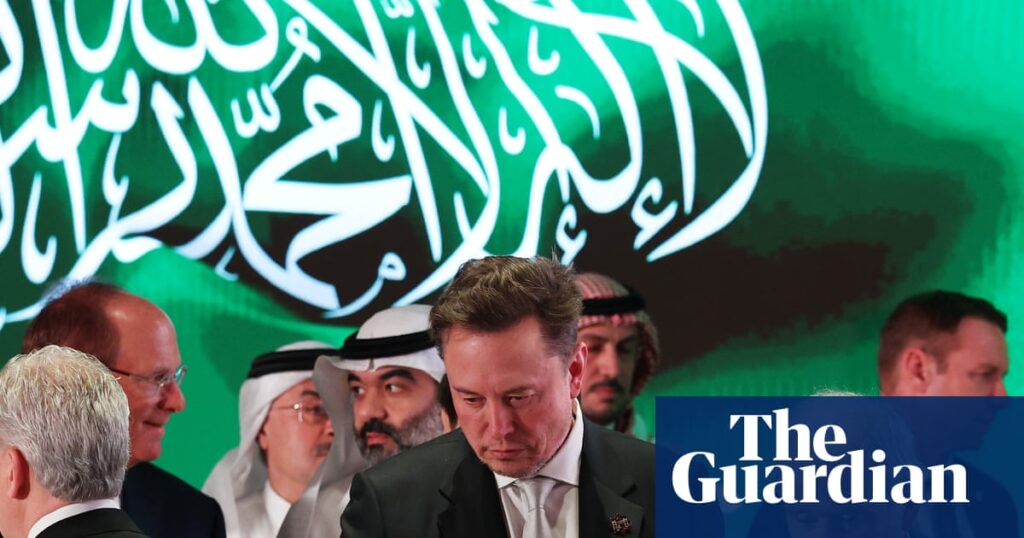
Ali al-Ahmed, a Saudi journalist and analyst, does not hold Elon Musk solely responsible for the decline of Twitter. To him, Musk is merely the latest face of an old regime whose issues began long before Musk’s infamous entry into Twitter headquarters in October 2022, carrying a porcelain sink in a failed attempt at humor. Ahmed, who resides in the Washington D.C. area, is the founder of the Institute for Gulf Affairs, a think tank focused on Saudi human rights. His insights are invaluable to journalists navigating the complex intersection of technology and authoritarian influence.
For Ahmed, whose family members have been imprisoned by the Saudi royal family, the fight for human rights is deeply personal. Despite his account being banned by Twitter, he remains outspoken about the platform’s priorities. “Twitter is no different from Boeing or those military companies,” Ahmed states. “They care about making money. Twitter and Facebook are not champions or models for human rights. These people are nothing but money-grubbers.” His concerns are not unfounded; Twitter has been a tool for Saudi authorities to surveil and control dissent.
Saudi Influence and Twitter’s Role
The relationship between Twitter and Saudi Arabia is deeply intertwined. Prince Alwaleed bin Talal, a billionaire Saudi businessman, was Twitter’s largest outside shareholder. The platform became a key tool for the Saudi government to monitor and suppress dissenting voices. Ahmed’s fears that his Twitter account had been compromised highlight the real dangers faced by dissidents. This was not merely theoretical; Abdulrahman al-Sadhan, an aid worker, was abducted and sentenced to 20 years in prison for running a satirical Twitter account.
Saudi Arabia’s use of Twitter for repression is part of a broader strategy of influence. The kingdom has invested heavily in Silicon Valley, with significant stakes in companies like Uber and Blackstone. This investment strategy is aimed at diversifying Saudi Arabia’s economic interests and enhancing its global influence. According to Nader Hashemi, a professor at Georgetown University, “They want to use the latest technology in order to continue to remain in power and surveil their populations.”
The Spy Ring Inside Twitter
In 2014, a Saudi official toured Twitter’s San Francisco headquarters, setting the stage for a spy ring within the company. Ahmad Abouammo, a Twitter employee, was recruited to gather information on Saudi dissidents. He received over $100,000 in cash and gifts for his efforts. His successor, Ali Alzabarah, had even greater access to user data, further compromising the safety of Saudi dissidents.
The FBI warned Twitter about the espionage problem, but the company was slow to act. Abouammo was eventually arrested and sentenced to prison, but Alzabarah fled to Saudi Arabia, where he continues to evade justice. Twitter has never fully addressed the spy ring or implemented measures to prevent similar incidents in the future.
Musk’s Acquisition and the Future of Twitter
Elon Musk’s acquisition of Twitter brought new challenges. Despite initial skepticism from Saudi investors, Prince Alwaleed supported Musk’s takeover, rolling his shares into the new entity. Musk’s approach to foreign governments has been transactional, prioritizing business interests over ethical considerations. This has raised concerns about the platform’s integrity and its potential for misuse by authoritarian regimes.
Twitter, now rebranded as X, continues to grapple with its role as a platform for free speech. The company’s willingness to overlook investor misconduct is emblematic of broader corporate practices. As Ali al-Ahmed notes, “It’s part of this foreign influence and the corruption that’s also now in the court system.”
Implications and Looking Ahead
The relationship between Twitter and Saudi Arabia underscores the complex dynamics between technology and authoritarianism. The platform’s role as an “informational battleground” highlights the challenges faced by tech companies operating in repressive environments. The Saudi spy scandal is a cautionary tale of how economic interests can compromise ethical standards and user safety.
As Twitter navigates its future under Musk’s leadership, questions remain about the company’s commitment to transparency and accountability. The platform’s ability to balance profitability with ethical responsibilities will be crucial in determining its impact on global discourse. The ongoing legal battles and shareholder scrutiny may provide further insights into the company’s operations and its ties to foreign governments.
Ultimately, the story of Twitter and Saudi Arabia is a reminder of the power dynamics at play in the digital age. As technology continues to shape our world, the need for vigilance and accountability has never been greater.






